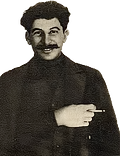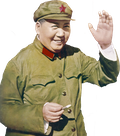this post was submitted on 12 Nov 2024
35 points (100.0% liked)
askchapo
22819 readers
172 users here now
Ask Hexbear is the place to ask and answer ~~thought-provoking~~ questions.
Rules:
-
Posts must ask a question.
-
If the question asked is serious, answer seriously.
-
Questions where you want to learn more about socialism are allowed, but questions in bad faith are not.
-
Try !feedback@hexbear.net if you're having questions about regarding moderation, site policy, the site itself, development, volunteering or the mod team.
founded 4 years ago
MODERATORS
you are viewing a single comment's thread
view the rest of the comments
view the rest of the comments



Is Locke really that noteworthy? I haven't given him a serious read but from a skim he basically just seems like "The king shouldn't be allowed to take away my Funko Pops." Very proto-liberal compared to other figures like Montesquieu ("The Spirit of Laws") or Rousseau ("The Social Contract"), which, sure, are idealist slop, but actually have something resembling a vision for society.
T-Paine definitely makes the cut.
Locke is important for understanding the ideological justifications that the liberals themselves used to underpin their political projects. That's about it. A material analysis will otherwise give a much better understanding of the historical conditions that created liberalism, which is really just the bourgeoisie trying, successfully, to wrestle power away from the aristocracy. Whatever they said about Locke or Rousseau was just in service of that in the end.
Locke argues for the right to revolt against unjust sovereigns (I sometimes joke that Mao was paraphrasing Lock when he said "it is right to rebel").
His theory of the right to property ownership being justified by "improvement" is essential in the development of bourgeois ideological hegemony (which includes that the bourgeoisie are more fit to rule than feudal landlords: compare Smith) and rationalizing settler-colonialism in the liberal world view.